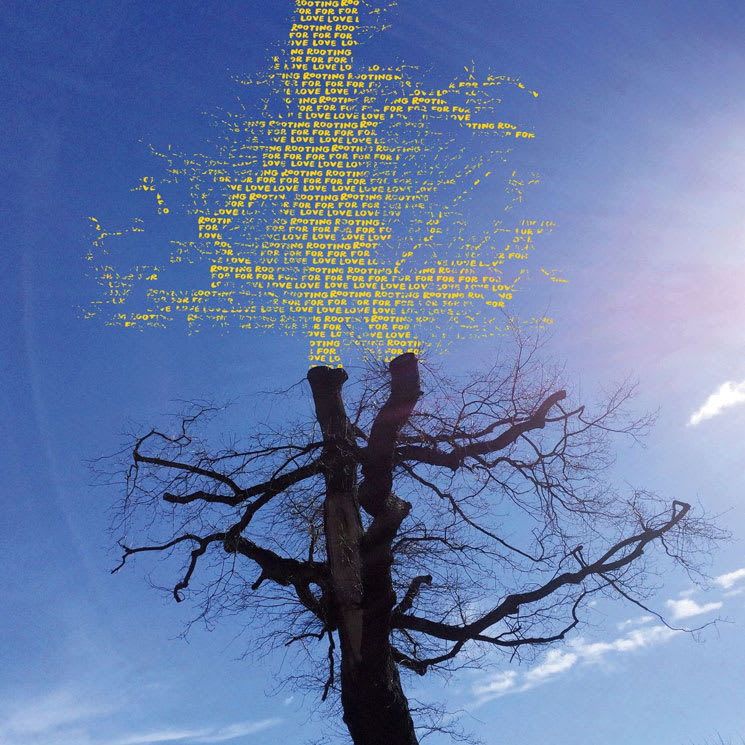Perhaps the greatest achievement of Laetitia Sadier's career, reached alongside ex-partner and Stereolab co-founder Tim Gane, was the invention of vibes. Okay, maybe “invention” is too strong a word, but Stereolab certainly managed a synthesis between many accepted layers of cool, from the Velvet Underground’s two chord drug drone to ‘60s French pop crossed with the German kosmische Musik of the ‘70s and beyond. Stereolab’s essence, so widely and inexactly copied ever since, is something Sadier has in her bones, and it’s still palpable some three decades on.
On her fifth solo album — her first since 2017 — Sadier turns her Gnosis and Zen studies outward, identifying and alleviating the psychic pains of the modern world as breezily as she can manage. The album's title carries a double meaning, both cheering for love and digging deep within our intellectual dirt to find a beating heart. The Source Ensemble, Sadier’s loosely assembled musical group, provides Rooting for Love all the artful cool you'd expect from people who were hip before it was a pejorative term.
Sadier's use of English and French lyrics allows her to flirt with concepts that would clank if simply sung in English. A song titled “ProtéÏformunite,” loosely translating as "protean unity," can have the lyric, “entre le nouménal et le phénoménal” followed by a sing-song “oh éh, oh éh” and we allow it, stewing in the academic exoticism of the post-lounge freak out that it follows. In her voice, a lyric like, “Since we came back from your lecture you were quite over excited / No time for hugs and kisses” — sung atop a minimal groove of programmed drums, synth swells, and bass pulse — sound as natural as her demand that a lover “put down that bottle and come over here” in “Don't Forget You're Mine.”
Lest this all start to sound like homework, Rooting for Love has a glossy surface layer that’s as seductive as any dance floor banger — even brainiacs need rapture from time to time. Tracks like “The Dash” or “New Moon” could be mistaken for an ‘80s Grace Jones club track, only the most astute listeners would notice they were grinding to, “Eyes of children / The heart of another / Things we fear are false.” It's the kind of cocktail lounge philosophizing that we can all get behind, with a groovy mission that entreats us to find in our bodies the wisdom to quiet our brains.
